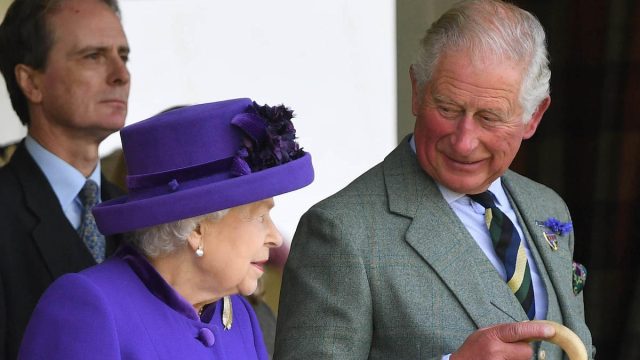The Queen Thinks Prince Charles Will Be a “Brilliant King,” Insider Says

Queen Elizabeth and Prince Charles have never had the warmest mother-son relationship. As a young queen, Her Majesty was forced to put her royal duty over parenthood many times while Charles was growing up, fostering a distance between the two that’s said to have lingered throughout their adult lives. During the Princess Diana era, the Queen found herself refereeing the “War of the Wales” and reportedly had concerns about what type of monarch her eldest son would be when he became mired in the drama. But the events of the last few months—most notably the Jeffrey Epstein scandal that resulted in Prince Andrew “stepping down” from his official royal duties and Charles’ role in navigating “Megxit”—have changed all that.
One palace insider told me, “Charles was the steadying force during the chaos. He was brilliant at sorting it out and now he’s just getting on with it. Her Majesty is fully confident that the Prince of Wales will make a brilliant king.”
Now 71, it appears Charles has finally gotten the definitive seal of approval from his mother—the 93-year-old Queen has reportedly ceded many duties to him during what royal watchers call a “transition period.” When the Queen decided that Andrew, her so-called favorite son, needed to be cut from the royal roster, Charles cast a decisive vote, which was a stunning sign of a power shift behind Palace walls.
Charles was only three years old when he became heir apparent, meaning he’s been waiting to ascend the throne longer than any previous Prince of Wales. Having spent his life in his mother’s shadow, he has taken a considerably more visible role in recent years, representing the Queen abroad (as she no longer travels internationally) and at various official functions at Buckingham Palace.
Months before Prince Harry and Meghan Markle made their stunning announcement that they’d “step back as ‘senior’ members” of the royal family in January, Harry went to his father about having a second home in North America. While the Prince of Wales didn’t nix the idea straight away, he wanted a well-thought out plan before moving ahead. Harry, however, decided to speak to his grandmother to expedite things in a move that badly backfired. In a show of Charles’ emerging power, his courtiers were able to stop what they considered an end-run around him. When the news broke about Harry and Meghan’s decision, Charles was his mother’s key advisor about the future of the Sussexes at the summit that resulted in “Megxit.”
As royal author Nigel Cawthorne told Express, the stipulation that Harry and Meghan were not to use their HRH titles was also a sign that Charles, not the Queen, was willing to take the designation away from any member of the royal family. Cawthorne called it a “warning to all the royals still using their HRH style without carrying out royal duties.”
“The Prince of Wales means to modernize and streamline the monarchy. That much has been made clear,” my insider said. “In the past three years, there may have been some reluctance on the Queen’s part to make those changes because of its effects on the family, but she understands and supports Charles’ decision in order to secure the future of the monarchy.”
Still, the reign of King Charles III is quite a ways away. Despite the persistent rumors that the Queen will retire at 95, when I spoke to historian and royal biographer Robert Lacey for Newsweek, he told me, “I don’t believe the queen has any wish to retire, nor appoint anyone who might infringe on her powers, if she can avoid it.”
In other words, it will still likely be some time before Charles is officially in charge. But at least now the Queen has gained confidence in him. And for more on Prince Charles’ past, check out Prince Charles’ Most Controversial Moments That You’ve Forgotten About.
Diane Clehane is a New York-based journalist and author of Imagining Diana and Diana: The Secrets of Her Style.